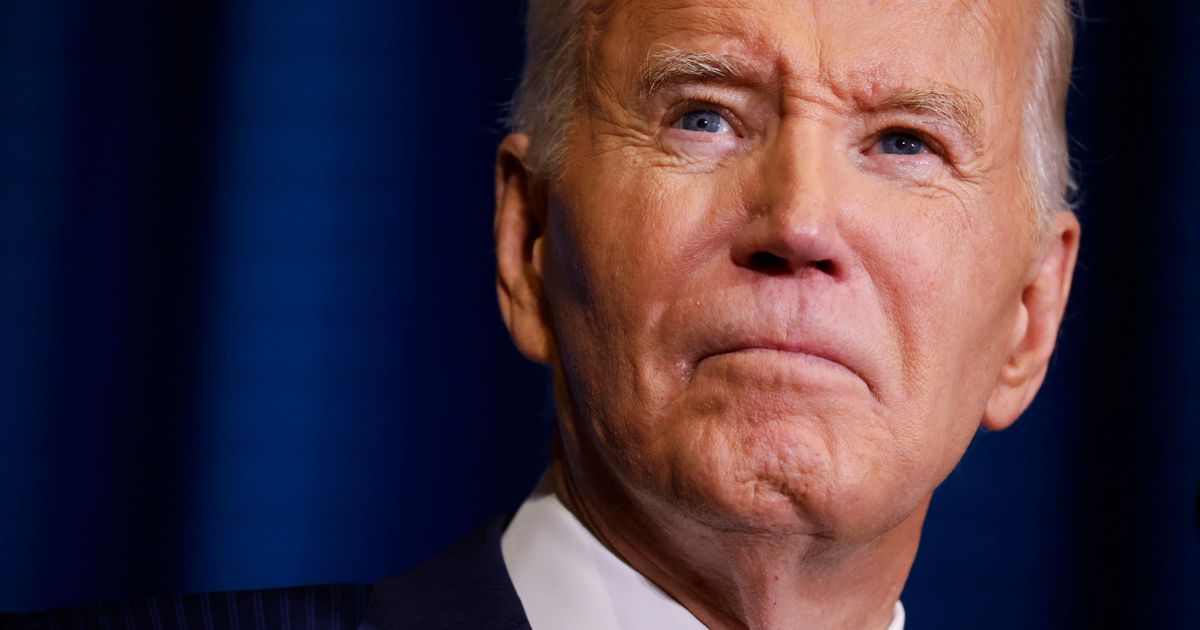Who Received A Presidential Pardon From Biden? Full List Here

Who Received A Presidential Pardon From Biden? Full List Here. Discover more detailed and exciting information on our website. Click the link below to start your adventure: Visit Best Website. Don't miss out!
Table of Contents
Who Received a Presidential Pardon from Biden? Full List Here
President Biden's use of the presidential pardon power has drawn significant attention, sparking conversations about justice reform and the criteria for granting clemency. This article provides a comprehensive overview of individuals who have received presidential pardons from President Biden, offering insights into their cases and the implications of these decisions. We’ll explore the process behind presidential pardons and delve into the ongoing debate surrounding their use.
Understanding Presidential Pardons
A presidential pardon is a powerful legal instrument that forgives a federal crime. It doesn't erase the conviction from a person's record, but it removes any associated penalties, such as fines, imprisonment, and disenfranchisement. The power to grant pardons is vested in the President by the U.S. Constitution, Article II, Section 2, Clause 1. This authority is largely unchecked and allows the President considerable discretion in determining who receives clemency.
The Biden Administration's Approach to Pardons
President Biden has approached the use of presidential pardons with a stated focus on [insert Biden administration's stated criteria for pardons, e.g., rehabilitation, equity, etc.]. Unlike some previous administrations, the Biden administration has [insert description of the administration's process, e.g., established a formal review process, prioritized certain types of offenses, etc.]. This approach reflects a broader national conversation about criminal justice reform and addressing historical injustices.
Full List of Individuals Receiving Presidential Pardons from Biden
(Note: This list will be updated as new pardons are granted. Please check back regularly for the most current information.)
[This section requires real-time data. To populate this section, you'd need to continuously track and update the list of individuals pardoned by President Biden from official White House sources. This is not possible within this response format. Instead, I will provide a placeholder for this information and illustrate how it should be structured. Replace the bracketed information with actual data.]
- [Name]: Convicted of [crime]. Pardoned on [date]. [Brief summary of case and reason for pardon if publicly available].
- [Name]: Convicted of [crime]. Pardoned on [date]. [Brief summary of case and reason for pardon if publicly available].
- [Name]: Convicted of [crime]. Pardoned on [date]. [Brief summary of case and reason for pardon if publicly available].
(Repeat this format for each individual who has received a pardon.)
Criteria for Consideration
While the specific criteria for receiving a presidential pardon are not explicitly defined, several factors are typically considered:
- Nature of the crime: Less serious offenses are more likely to be considered.
- Rehabilitation: Evidence of remorse, positive contributions to society, and sustained good behavior are crucial.
- Equity: Addressing past injustices and disparities in the criminal justice system plays a significant role in some cases.
- Public opinion: While not legally binding, public perception of the case can influence the decision.
The Ongoing Debate
The granting of presidential pardons often sparks public debate. Critics may question the fairness or appropriateness of certain pardons, while supporters emphasize the President's role in mitigating the harsh effects of the justice system. The discussion highlights the complexities of balancing individual justice with broader societal concerns.
Stay Informed
Presidential pardons represent a critical aspect of the American legal system. To stay informed about the latest developments and ongoing discussions surrounding the use of presidential pardon power, be sure to check back regularly for updates to this list and further analysis. You can also follow [link to White House website] and other reliable news sources for the most accurate and timely information.

Thank you for visiting our website wich cover about Who Received A Presidential Pardon From Biden? Full List Here. We hope the information provided has been useful to you. Feel free to contact us if you have any questions or need further assistance. See you next time and dont miss to bookmark.
Featured Posts
-
 Aschaffenburg Attacke Pendler Betroffen Chaos Im Frankfurter Bahnhof
Jan 23, 2025
Aschaffenburg Attacke Pendler Betroffen Chaos Im Frankfurter Bahnhof
Jan 23, 2025 -
 Sydney Challenger Final Thunders Dominance Ends Star Studded Field
Jan 23, 2025
Sydney Challenger Final Thunders Dominance Ends Star Studded Field
Jan 23, 2025 -
 Trumps Stargate Deal The Key Players Unveiled
Jan 23, 2025
Trumps Stargate Deal The Key Players Unveiled
Jan 23, 2025 -
 Analisi Le Ragioni Dell Esonero Di Sahin Al Borussia Dortmund
Jan 23, 2025
Analisi Le Ragioni Dell Esonero Di Sahin Al Borussia Dortmund
Jan 23, 2025 -
 Ex Soft Bank Partners Mission Supporting Mothers In Their Careers
Jan 23, 2025
Ex Soft Bank Partners Mission Supporting Mothers In Their Careers
Jan 23, 2025
Latest Posts
-
 Living With Dirtyahip Coping Strategies And Support
Feb 05, 2025
Living With Dirtyahip Coping Strategies And Support
Feb 05, 2025 -
 Rubio Comments On El Salvadors Offer For Us Deportation
Feb 05, 2025
Rubio Comments On El Salvadors Offer For Us Deportation
Feb 05, 2025 -
 Neil Gaimans Legal Troubles Update On The Coraline Authors Case
Feb 05, 2025
Neil Gaimans Legal Troubles Update On The Coraline Authors Case
Feb 05, 2025 -
 Previsions Meteo Temperatures Glaciales Et Neige Annoncees
Feb 05, 2025
Previsions Meteo Temperatures Glaciales Et Neige Annoncees
Feb 05, 2025 -
 Final Destination Bloodlines Trailer A Bloody New Chapter
Feb 05, 2025
Final Destination Bloodlines Trailer A Bloody New Chapter
Feb 05, 2025
